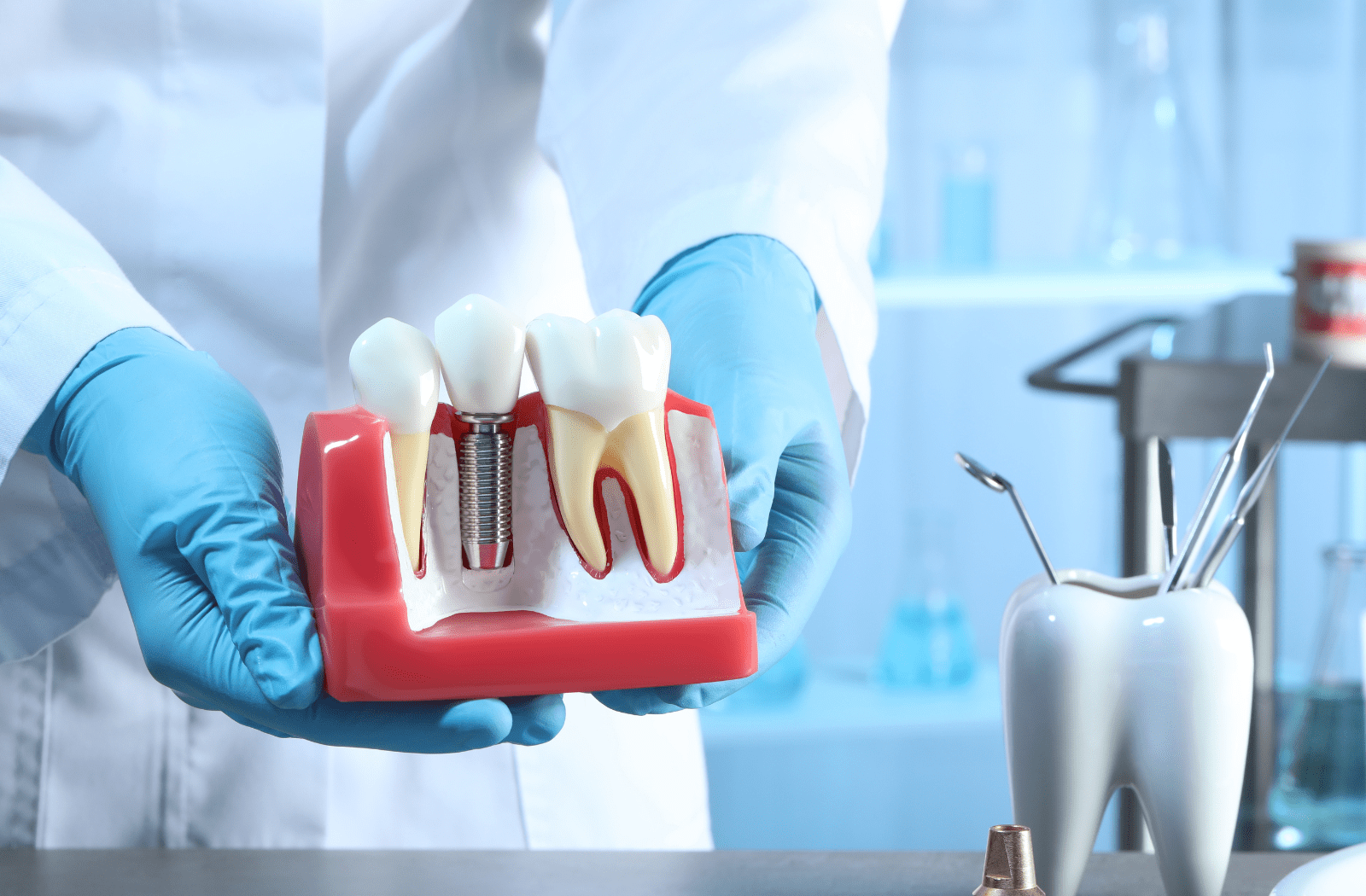Are Dental Implants Painful?
Dental implant surgery is one of the most dependable and long-lasting methods of replacing missing teeth. However, because this procedure involves implanting an artificial tooth root into the jawbone, some pain is almost always a minor side effect.
One of the main reasons people think dental implant surgery is extremely painful is due to what they see on the internet. A quick search for dental implant surgery will yield a plethora of images of people having holes drilled into their gums, which can be pretty frightening if you are unaware of what’s going on.
However, there is no need to be concerned because the procedure is not as painful as it appears. It might ease your nerves to learn the process and understand where you might experience some pain.
What Will Happen During Dental Implant Surgery?
Most patients are pleasantly surprised at how simple dental implant surgery is, comparing it to having a tooth extracted.
Since dental implants require one or more surgical procedures, you must undergo a thorough evaluation to prepare for the procedure, which typically includes the following.
 Overview of Your Medical History
Overview of Your Medical History
Inform your doctor about any medical conditions you have, as well as any medications you’re taking, including prescription, over-the-counter, and herbal supplements. If you have heart conditions or orthopedic implants, your doctor may prescribe an antibiotic before surgery to help prevent infection.
Comprehensive Exam
A comprehensive dental exam provides your dentist with a complete picture of the condition of your teeth and jaw. Dental X-rays and 3D images, as well as models of your teeth and jaw, will be needed.
Strategy for Dental Implant Surgery
Your dentist will come up with a strategy tailored to your specific situation and considers factors such as the number of teeth that need to be replaced, as well as the condition of your jawbone and remaining teeth.
Removing the Affected Tooth
Certain dental implant procedures allow for the extraction of damaged teeth and the immediate replacement of a full arch of fixed natural-looking replacements. However, in most cases, a damaged tooth must be extracted and the area must heal properly before proceeding.
Getting a Bone Graft
To prepare the area after a patient’s natural tooth is removed but before an implant is inserted, a bone graft is commonly (but not always) used. These grafts aid in the proper integration of the implant with the bone by encouraging the growth of new bone, and strengthening the jawbone.
Placing the Implant
During this stage, your mouth will be numbed with local anesthesia by your dentist. They will make an incision in your gum to expose the bone after the medication has had time to take effect.
After making the incision, they use a drill to make room in the bone for the implant screw. Following the implant’s placement, you might need one or two stitches, depending on the size of your incision.
Dental Crowns
To ensure a secure attachment, you must wait a few weeks for the implant and bone to fuse together. You’ll move on to the second stage of the procedure once it has healed.
Your doctor will perform a fresh examination of the implant during this appointment through a new incision. Following the abutment’s affixation to the implant, an impression will be made to fit a dental crown.
The number of appointments needed for the crowns varies depending on the case and the dentist’s preferences. The last step is when you will get your new crown. You might receive a trial procedure before the final fit to make sure that everything fits perfectly.
How Painful are Dental Implants?
Dental implant surgery causes trauma to the gums as well as the jaw. Because the mouth will be numbed, the surgery should be painless. However, as the numbness wears off, patients often experience some level of pain.
Many dental professionals offer pain medication to patients who are experiencing discomfort at the implant site. In some cases, post-surgery pain is so mild that it can be treated with over-the-counter pain relievers.
In general, a single implant will cause less discomfort than surgery involving multiple implants. Patients will typically experience pain for up to 10 days following the procedure, but the pain may resolve sooner.
If excessive discomfort persists after 10 days, you should contact a dental professional immediately. Prolonged pain could indicate that the implant site is infected. If this is the case, the dentist has to act quickly to save the implant.
Considering Getting a Dental Implant?
Nobody enjoys experiencing any kind of pain. However, if you are considering dental implant surgery, don’t let the prospect of post-surgery discomfort deter you.
Implants are intended to be permanent tooth replacements, and when completed, the implant process will leave you with a stunningly restored smile. If you have any questions about dental implants don’t hesitate to reach out to our team at South Bolton Dental.









